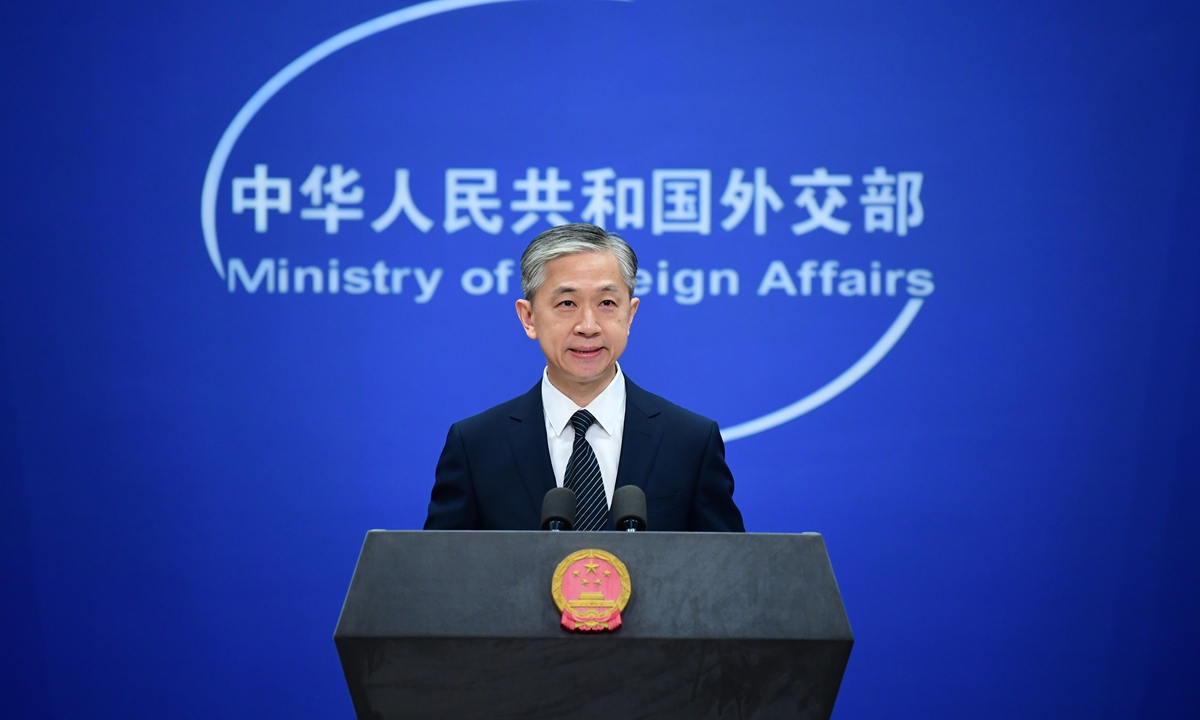China provides COVID-19 vaccines to 14 developing countries and will aid 38 more: Chinese FM

MWang Wenbin, spokesperson of China’s Foreign Ministry Photo: cnsphoto
In addition to Pakistan, China is providing aid in the form of COVID-19 vaccines to 13 developing countries including Brunei, Nepal, the Philippines and Equatorial Guinea, Chinese Foreign Ministry spokesperson Wang Wenbin said at press conference on Monday.
China will aid 38 more developing countries in need of COVID-19 vaccines, Wang added, noting that China is also actively participating in the WHO’s COVAX initiative to provide vaccines to developing countries.
A batch of inactivated COVID-19 vaccines donated by the Chinese government to Pakistan has arrived in its capital Islamabad on Monday morning, Wang said. It is the first batch of vaccines provided by the Chinese government to a foreign country, which indicates that China will make its vaccines a global public product.
He said that the vaccine cooperation between Pakistan and China not only reflects the sincere mutual assistance between the two as all-weather strategic cooperative partners, but also reflects the duo’s efforts to promote vaccines as a global public product and improve the accessibility and affordability of vaccines in developing countries.
China supports its domestic companies in cooperating with their overseas partners in research, development and cooperative production of COVID-19 vaccines, Wang said. China has exported COVID-19 vaccines from Chinese vaccine developers Sinopharm and Sinovac to countries including the UAE, Morocco, Indonesia, Turkey, Brazil and Chile, where clinical trials of China’s COVID-19 vaccines are ongoing.
Furthermore, China supports the relevant enterprises in exporting COVID-19 vaccines to countries which urgently need them, recognize Chinese vaccines and have authorized their emergency use, Wang noted, adding that more countries have approved Chinese vaccines for local use.
“We also look forward to the joint efforts of the international community to promote the equal distribution and use of vaccines around the world and ensure that vaccines are available and affordable in developing countries,” Wand said.
Source:globaltimes.cn/